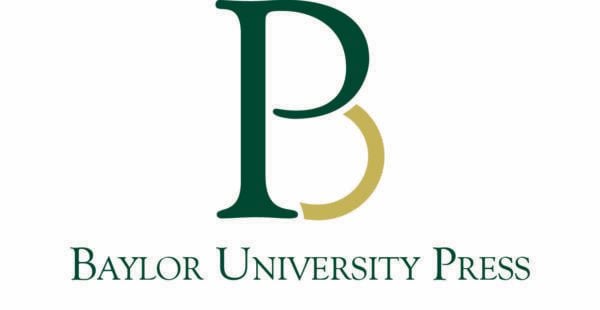Today I have a guest post by Cade Jarrell, who is the Assistant Director of Baylor University Press. Baylor runs an excellent press mainly focused on religious themes, very broadly defined. And (full disclosure) I have published several titles with them through the years. Check out their lists here.
Publishing is of course central to the academic world, and we are currently passing through multiple transitions that would have amazed earlier generations. It seemed like an excellent idea, then, to get the perspective of an experienced insider. You can find details about Cade and his background here. He makes some thoughtful and provocative points.
Reading in a Streaming Age—On Limits and Academic Publishing
Cade Jarrell
This may seem like a peculiar place to start a brief reflection on publishing, but it’s a good starting point all the same for the direction of my thoughts here. Recently, the prospect of a ban on TikTok was the source of much hand-wringing and bemoaning of government overreach, but also of self-congratulatory exuberance in certain quarters. It brings into sharp focus a very particular moment in popular culture. TikTok gained traction in the late 2010s, primarily as a “dancing app,” and exploded into a general fervor during the pandemic. It offered millions a chance to connect, escape, and express. I must confess I was one of those who fell down the rabbit hole of scrolling through video after video, the leap in genre and tone and style between each a dizzying inundation of instant gratification. The endless stream of all manner of entertainment, education, reflection, cute dogs, pretty scenery, movie clips, video game clips, underground music . . . it was intoxicating. It never ended.
Well, it still continues, for the immediate present at least, although we will have to see what the Trump administration will do with the app, or whether some other digital media sensation replaces it. But my point in all this is that TikTok represents quite succinctly the relationship the majority of society has to media: it’s spontaneous, quick, flashy, and constant. There are no limits; we crave infinite content.
Don’t get me wrong, I quite enjoy the panoply of offerings that the internet and streaming services have brought us. The whole world is at our hands, ever-ready for our consumption in whatever dosage we see fit for the moment. That is, obviously, a double-edged sword, but I am not one of the doomsayers decrying this cultural proclivity as the descent into cultural disintegration. To put it bluntly, it is what it is.
Here’s where this connects to the larger point of this reflection. One type of media that holds steady through all currents and fads, that remains a fixture of all levels of society even as its usage among various demographics ebbs and flows, is the physical book. People do still read, and not just on tablets, or through audiobooks (aural reading is a valid alternative, I admit). There is some ineluctable, unplaceable satisfaction in holding a block of bound paper, the unique sensory experience of thumbing through the pages (or smelling the pages, if you’re into that), of caressing the cover. Even simply browsing books is a joy for millions—there’s a good reason the brick-and-mortar bookstores still exist, if as a shadow of their popularity at the end of the last millennium. We continue to line shelves with tomes that we may never read; it just feels good having them on display, whether as a “flex” of our refined taste or as a sort of ambient presence of the spectrum of humanity’s knowledge, wisdom, and talent.
As a publisher, Baylor University Press remains committed to the artifact that is the printed book. Granted, we are a publisher serving the humanities—specifically the guilds of biblical, theological, and religious studies—and our constituency remains a major consumer force behind ongoing print sales. Scholars cherish their book collections and get hyped for new books in the way Star Wars fans get hyped for Comicon (or the way I am currently hyped for the next Nintendo Switch, but I digress). The big annual religious studies bash, the combined American Academy of Religion/Society of Biblical Studies conference, features as its focal point the glorious book exhibit. Publishers of all stripes and sizes stake out spots to display their newest titles and the hits of their backlist. Conference attendees mill about in a buzz of enthusiasm and childlike wonder, browsing the shelves and stacks of books catering to their particular disciplines. It’s a gathering hall for conversation and camaraderie amidst the physical manifestations of the academic craft. It’s rather magical.
So, what makes a book so perennially endearing, then? I would suggest that, unlike our digital media culture, books promote careful, thoughtful, measured engagement. The offering of books on the market is seemingly endless (think of the sobering words of Ecclesiastes) but a single book is precisely limited. There is a beginning and an end. It says what it has to say, you take it in, move to the next after ingesting the usually very focused content of that one volume. Unlike streaming services or social media or blogposts, even, books do not really lend themselves to continual amendment, addition, enhancement. They are not an ongoing stream of thought, expression, and entertainment. Each book presents itself as a singular experience, inviting readers to engage with its specific message or argument or narrative in a prolonged act of attentiveness. Say what you will about twenty-first century culture, but we still value such limited experiences.
We at Baylor Press recognize that just as books are necessarily constricted in their scope, they are also reflective of a particular moment. Scholarship has trends just as much as pop culture. But their value lies in their distillation of research, analysis, and insight. They speak into conversations about ideas and issues that will endure long after a specific book is consigned to the dustbin or pushed to the back of the shelf. They capture, in a timeless way, the time-sensitive voice of the author.
And in our publishing philosophy, we believe that our authors have something very important to say. Something worth putting into print. As a faith-based publisher attached to a faith-based R1 institution, we also believe that the best scholarship contributes not only to technical, specialized topics but also to the pressing needs of church and society. Our motto is Books for Good, and we mean that: we endeavor to foster scholarship that brings the best of academic findings into direct contact with the work of the gospel—kingdom work. This missional aim hopes for a society flourishing in its relationships, its intellectual life, its symbiosis with creation, its artistic endeavors, and its care for life. All of this is a reflection of the ultimate intentions of our gracious creator. Our books, then, are small acts of service to the vocation of faith.
I say all of that to say, Baylor University Press seeks authors and books that 1) exhibit real passion for their highbrow, ivory-tower research and take seriously the current shape of the field; 2) want to speak constructively into that field rather than simply dismantling what has come before; 3) and believe that their thesis or argument or whatever has real-world ramifications. So, for instance, we are keen on various strands of the “Bible/theology and X” approach: the Bible and immigration, theology and disability, the Bible and social justice, theology and ecology. We also value historical and sociological works that give insight into how religion is lived “on the ground” in specific contexts, and that engage with the hard realities of imperialism, racism, and exploitation underlying our present global system—that mystifying network of commerce and information and entertainment yielding such phenomena as the TikTok app.
As a small-shop university press, our scope is much more limited than the big-house commercial publishers, and so the range of subjects we specialize in is more intentionally curated. Each book receives a level of personal care and platforming in our catalog that is unmatched among our larger publishing peers. We see ourselves as shepherds of ideas, coming alongside our authors to guide their unique vision into something concrete and tangible for the thoughtful consumption of the scholarly and ecclesial community.
There is no end in sight for our program, despite the crunches of increasing costs impinging on the entire industry, despite the push for Open Access-dominant models, despite the shifts in the cultural ethos. We invite scholars of Bible, theology, and religion—from newly minted PhDs to established luminaries—to join with us in crafting a body of books that presents a discernible narrative with a discernible goal.















